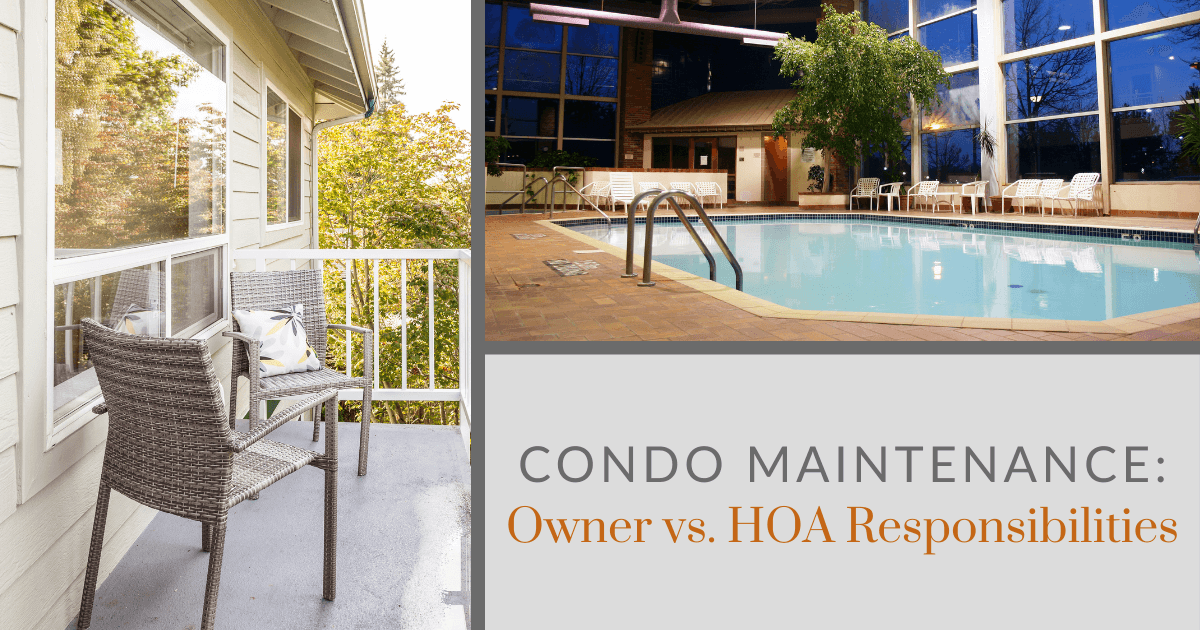Leading Myths Regarding HOA Condo Life Debunked
The Duty of an HOA in Establishing and Enforcing Area Guidelines for Homeowners
The function of a Homeowners Association (HOA) in establishing and implementing community standards is basic to keeping a natural and orderly household setting. By developing clear policies that regulate aspects such as building maintenance and neighborhood conduct, the HOA not only establishes requirements for locals however also fosters a feeling of belonging and responsibility.
Understanding Homeowners Organizations
Homeowners associations (HOAs) function as regulating bodies for domestic areas, playing an important role in keeping residential property values and fostering a sense of area. Generally created by designers, HOAs are made up of house owners within a designated location that choose a board to oversee the organization's activities. The primary functions of an HOA consist of implementing area policies, managing usual areas, and arranging neighborhood occasions.
HOAs operate under a set of governing records, including commitments, conditions, and limitations (CC&R s), which describe the civil liberties and responsibilities of home owners. These regulations intend to make certain that properties are kept to a specific criterion, thereby securing the visual appeal and general worth of the neighborhood. In addition, HOAs often gather fees from home owners to money maintenance, landscaping, and other area solutions.
The visibility of an HOA can significantly influence the living experience within a community (hoa condo). While some homeowners appreciate the structured atmosphere and features supplied, others might locate particular laws restrictive. Balancing the interests of all property owners is necessary for an HOA to work successfully, making certain that it offers its desired objective of enhancing community living while valuing specific home owner civil liberties
Creating Neighborhood Standards

To begin, an HOA should conduct surveys or hold meetings that enable residents to voice their problems and pointers. This participatory procedure fosters a sense of possession and raises conformity. Next off, the HOA board need to examine the comments to determine usual themes and top priorities that call for official addition in the guidelines.
It is also vital to guarantee that the guidelines are clear, concise, and easily recognized. Obscurities can cause misunderstandings and disputes, undermining the objective of the standards. Moreover, the guidelines need to be thorough, covering different aspects of community living, consisting of home maintenance, sound degrees, and use of usual locations.
Enforcement of Rules
Efficient enforcement of community regulations is important for maintaining order and making certain that all citizens abide by the developed guidelines. An HOA needs to execute an organized approach to implement these regulations, which often entails a combination of surveillance, communication, and charges for non-compliance.
First, normal evaluations and area patrols can help determine violations, making sure that rules check are constantly used across the community. This aggressive monitoring enables the HOA to resolve issues prior to they rise, fostering a sense of responsibility amongst residents.
Second, clear interaction is important. Citizens need to be informed of the guidelines and the treatments for reporting offenses. An open line of interaction encourages homeowners to voice issues and look for explanation on standards, which can enhance compliance.

Lastly, when violations take place, the HOA has to apply repercussions as described in the governing records. By successfully implementing guidelines, an HOA can grow an unified living setting that shows the cumulative worths of its locals.
Advantages of HOA Laws
Numerous advantages occur from the implementation of HOA laws, which offer to enhance the top quality of life within a neighborhood. One key benefit is the maintenance of residential or commercial property worths. By enforcing requirements for looks and upkeep, HOAs make certain that homes and common locations remain eye-catching, promoting a preferable living atmosphere that can bring about boosted residential or commercial property worths in time.
In addition, HOA policies advertise consistency and harmony within the community. This coherence in layout and maintenance assists to develop a sense of belonging among homeowners, contributing to area pride and a favorable ambience. Developed guidelines help with problem resolution amongst next-door neighbors by providing clear expectations and procedures for habits, therefore reducing conflicts.
An additional substantial advantage is the provision of shared amenities and services. Numerous HOAs handle neighborhood centers such as swimming pools, clubs, and parks, which improve leisure chances for locals. These facilities not only improve the high quality of life however likewise motivate social interaction.
Ultimately, the regulations stated by an HOA grow an efficient, unified area, guaranteeing that locals appreciate a high requirement of living while fostering a supportive setting for all house owners.
Usual Difficulties Encountered by HOAs
Amidst the benefits that home owners organizations (HOAs) can supply, they also run into a selection of difficulties that can impede their effectiveness. One substantial problem is the lack of resident involvement. Lots of property owners might not join conferences or community tasks, causing a disconnect in between the HOA board and citizens. This disengagement can result in misconceptions regarding community standards and a lack of support for enforcement initiatives.
Disagreements can occur when locals feel that enforcement is irregular or prejudiced, potentially leading to conflicts within the neighborhood. Additionally, HOAs commonly encounter economic constraints, which can limit their ability to preserve typical locations or fund neighborhood projects.
Additionally, browsing legal complexities can be daunting for HOAs. They should guarantee compliance with state legislations while managing their own governing documents, which can be a resource of complication. Transforming demographics and advancing community needs call for HOAs to adapt their guidelines, usually satisfying resistance from enduring residents that are accustomed to typical norms. Dealing with these challenges is critical for promoting a here are the findings harmonious and growing neighborhood.
Conclusion

By developing clear regulations that govern elements such as property upkeep and neighborhood conduct, the HOA not just establishes standards for locals yet also promotes a feeling of belonging and liability.Homeowners associations (HOAs) serve as regulating bodies for household communities, playing an important duty in keeping residential or commercial property worths and cultivating a feeling of area. Many property owners may not take part in meetings or neighborhood activities, leading to a detach in between the HOA board and homeowners. Changing demographics and evolving community needs require HOAs to adapt their standards, often satisfying resistance from long-standing locals who are accustomed to conventional norms. Through the development of clear regulations and consistent enforcement, HOAs advertise property upkeep, area satisfaction, and trust fund amongst citizens.